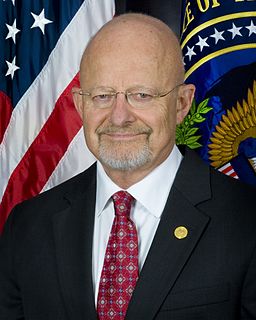A Quote by Christopher A. Wray
What was once a comparatively minor threat - people hacking for fun or for bragging rights - has turned into full-blown economic espionage and extremely lucrative cyber crime.
Related Quotes
We need to make sure that whenever we're engaging in a cyber-warfare campaign, a cyber-espionage campaign in the United States, that we understand the word cyber is used as a euphemism for the internet, because the American public would not be excited to hear that we're doing internet warfare campaigns, internet espionage campaigns, because we realize that we ourselves are impacted by it.
The thing that has disturbed me most about the Russian hacking episode is - and the thing that surprised me most has not been the fact of Russian hacking. The cyber world is full of information gathering, you know, propaganda, et cetera. I have been concerned about the degree to which, in some circles, you've seen people suggest that Vladimir Putin has more credibility than the U.S. government. I think that's something new.
While cyber espionage is having a tremendous negative affect on the global economy from the theft-caused drain of intellectual property and the resulting adverse incentives for continued investments in innovative growth, the threat from destructive and disruptive attacks is amplifying the risks even further.
The attack on the law firms and attacks like that are industrial espionage, searching for copyrighted materials to lift and so on; it's not quite the same as cyber-warfare. They are regarded as related. The Chinese are trying to steal an economic march on the West, which is a consequence of the fact that we outsourced all of our manufacturing to China in the 1990s.




























